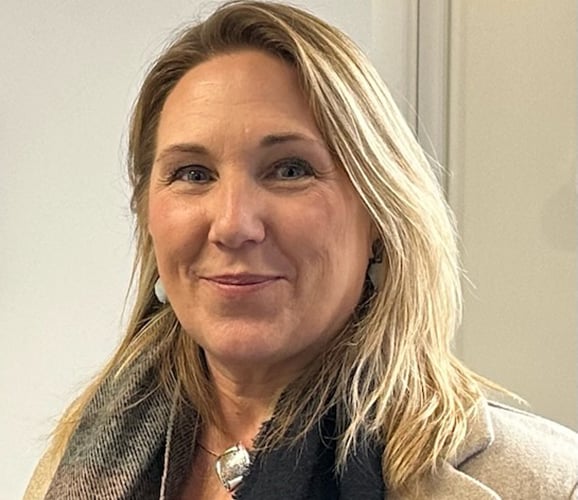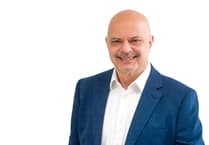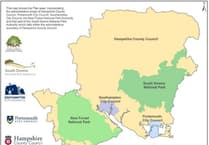Four candidates are vying to become the Hampshire and Isle of Wight police and crime commissioner (PCC) when residents go to the polls tomorrow (Thursday, May 2).
PCCs are elected representatives who hold police forces and chief constables to account, and decide how much residents pay towards policing through their council tax.
Throughout the four-year term, the role includes publishing a police and crime plan, which involves consulting with the public on their priorities and then detailing how they aim to address these issues.
Ahead of the Hampshire and Isle of Wight PCC election, we asked the four candidates 10 questions to provide an insight into their policies and personality.
Below, Labour’s Becky Williams discusses financial challenges, visible policing and building trust. The other candidates are Prad Bains (Liberal Democrat), Don Jerrard (The Justice and Anti-Corruption Party) and incumbent Donna Jones (Conservative).
Why should people care about the Hampshire and Isle of Wight police and crime commissioner election?
The police and crime commissioner (PCC) election for Hampshire and Isle of Wight is vital because the PCC sets local policing priorities, manages the police budget, ensures accountability, impacts community safety, represents public interests, and influences the broader criminal justice system.
Effective PCC leadership directly affects residents’ safety and quality of life, making it essential for community members to engage in this election.
What are the biggest challenges facing Hampshire and Isle of Wight Constabulary in the next four years?
Over the next four years, the Hampshire and Isle of Wight Constabulary will face significant financial and budgetary constraints. Careful scrutiny of fund allocation is essential to ensure the best outcomes for residents while building and maintaining trust and safety.
This will necessitate creative approaches to budget management and the development of initiatives that optimize the use of available resources.
Does Hampshire and Isle of Wight Constabulary have enough police officers and what should the priorities be for the force?
Although there has been a recent increase in the number of police officers, we still have not reached the staffing levels that existed in 2010, before the reductions in police funding.
Therefore, there is a clear need to further increase our numbers to enhance community policing and reassure the public through greater visibility
The force’s priorities should focus on ensuring visible policing and building sufficient capacity to respond to and thoroughly investigate crimes at all levels. Notably, the lack of response to low-level crimes significantly undermines public trust, and addressing this should be a critical focus.
What do you see as the most important function of the police and crime commissioner position?
The paramount function of a police and crime commissioner is to serve as the voice of the community, ensuring that residents’ concerns and priorities are heard and addressed.
Simultaneously, it is crucial to hold the chief constable accountable for the efficiency and effectiveness of policing operations, ensuring that they align with the public’s expectations and safety needs.
The police and crime commissioner is a political role. How much political experience do you have?
Although the position of police and crime commissioner is politically appointed, I believe that the essence of the role transcends party politics. The primary focus should be on advocating for and supporting the communities we serve.
I have been actively involved in local politics for two years, during which I made history as the first Labour councillor elected in my home ward in May 2023. Over the past year, I have also held the shadow portfolio for operations, gaining valuable experience in public service and community advocacy.
What is or was your day job outside of politics?
For the past 15 years, I have worked as support services operations manager at a business and technology consultancy, where I have overseen various departments including finance, recruitment, HR, security, vetting, and project support. This role demands exceptional stakeholder relationship management, especially as we work with public sector clients.
Before this, I worked with a local charity, initially providing finance and administrative support, then managing a drop-in café for marginalized young people in our community. In this role, I also mentored several youths and facilitated anger management training. My professional journey began after I qualified as a nurse in 1991.
What is the one top achievement you would like to deliver if elected PCC?
If elected as police and crime commissioner, my top priority would be to restore trust in our police force and enhance the sense of security and safety for all communities throughout Hampshire and the Isle of Wight.
Crime, in its various forms, affects our towns, cities, and rural areas differently. I am committed to ensuring that residents everywhere—whether in urban streets or rural lanes—feel safer and more secure than they have in years.
What crime blights people’s lives the most and how can it be tackled?
Crime that most significantly blights people’s lives often depends on the context of the community, but generally, violent crime, anti-social behaviour and property crime tend to have the most profound impact.
Violent crime, including assault, robbery, and domestic violence, deeply affects individuals’ sense of security and well-being. Property crime, such as burglary and vandalism, also significantly disrupts lives by causing financial loss and contributing to a feeling of vulnerability.
Should Hampshire and Isle of Wight residents expect to pay more towards policing every year and why?
Whether residents of Hampshire and Isle of Wight should expect to pay more towards policing each year depends on several factors, including the current funding levels, community safety needs, and broader economic conditions.
The decision to increase funding for policing should involve public consultation and consideration of the trade-offs between taxation levels and the desired quality and scope of policing services. This ensures that the funding model aligns with the community’s expectations and needs.
And lastly, who is your role model in life?
One of my role models is Nelson Mandela. For me, he is a great role model because of his incredible strength and dedication to fairness. Even after spending 27 years in prison, he chose to forgive and bring people together instead of seeking revenge.
His commitment to equality and his kind, humble nature has inspired me and many people around the world. Mandela’s life shows us how one person’s actions can make a big difference in fighting for justice and treating everyone with respect.
Candidate Don Jerrard (The Justice and Anti-Corruption Party) did not respond to the invitation to contribute to the Hampshire PCC Q&A.





Comments
This article has no comments yet. Be the first to leave a comment.